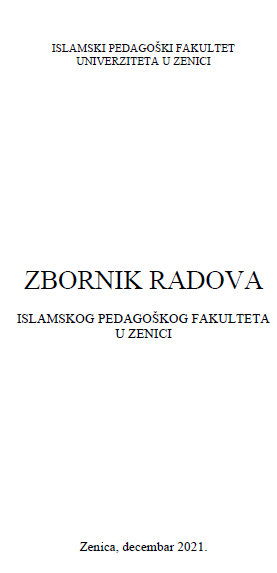AKCENAT IMENICA TIPA VÒDA I ŽÈNA U SAVREMENOM BOSANSKOM JEZIKU
THE ACCENT OF NOUNS TYPE VÒDA AND ŽÈNA IN CONTEMPORARY BOSNIAN
Author(s): Amina PehlićSubject(s): Theoretical Linguistics, South Slavic Languages
Published by: Islamski pedagoški fakultet Univerziteta u Zenici
Keywords: accent; accent type; accent alternations; standard language reference books; standard language use;
Summary/Abstract: The aim of this paper was to explore the accent of disyllabic feminine nouns of e-declension with a short ascending accent (type vòda and type žèna) in contemporary Bosnian standard language reference books and the standard language use, given the previously observed tendency towards losing accent alternations in a paradigm. Based on the comparative analysis of accent types of 29 nouns in Bosnian dictionaries and the previous description of accent by Daničić (1925), we concluded that the process of losing accent alternations in a paradigm of many analyzed nouns has advanced. For instance, as specified in Bosnian dictionaries, 12 nouns, namely bùha, djèca, gòra, hrđa, ìgla, ìgra, màgla, mùha, snàha, zmìja, zòra and žèlja belong to the invariable accent type, while being previously considered variable by Daničić. The accent types in the paradigm of the aforementioned 12 nouns were explored among 23 participants to check whether the loss of alternations also characterizes the standard language use. The findings showed that the process of losing alternations in paradigms of the majority of the investigated words has advanced in the standardized language use in comparison to the description by Daničić. In fact, according to Daničić all of these nouns belonged to the variable accent type (type vòda), and according to the results related to the standard language use the majority belong rather to the invariable type (type žèna). However, in contrast to the description in Bosnian dictionaries, where these words are mentioned only as belonging to the invariable type, it should be emphasized that in the standard language use almost all, although in a smaller percentage, were also found with alternations – which indicates that accent alternations in a paradigm of the majority of the investigated words are suppressed but not completely lost.
Journal: Zbornik radova Islamskog pedagoškog fakulteta u Zenici
- Issue Year: 2021
- Issue No: 19
- Page Range: 505-520
- Page Count: 16
- Language: Bosnian

